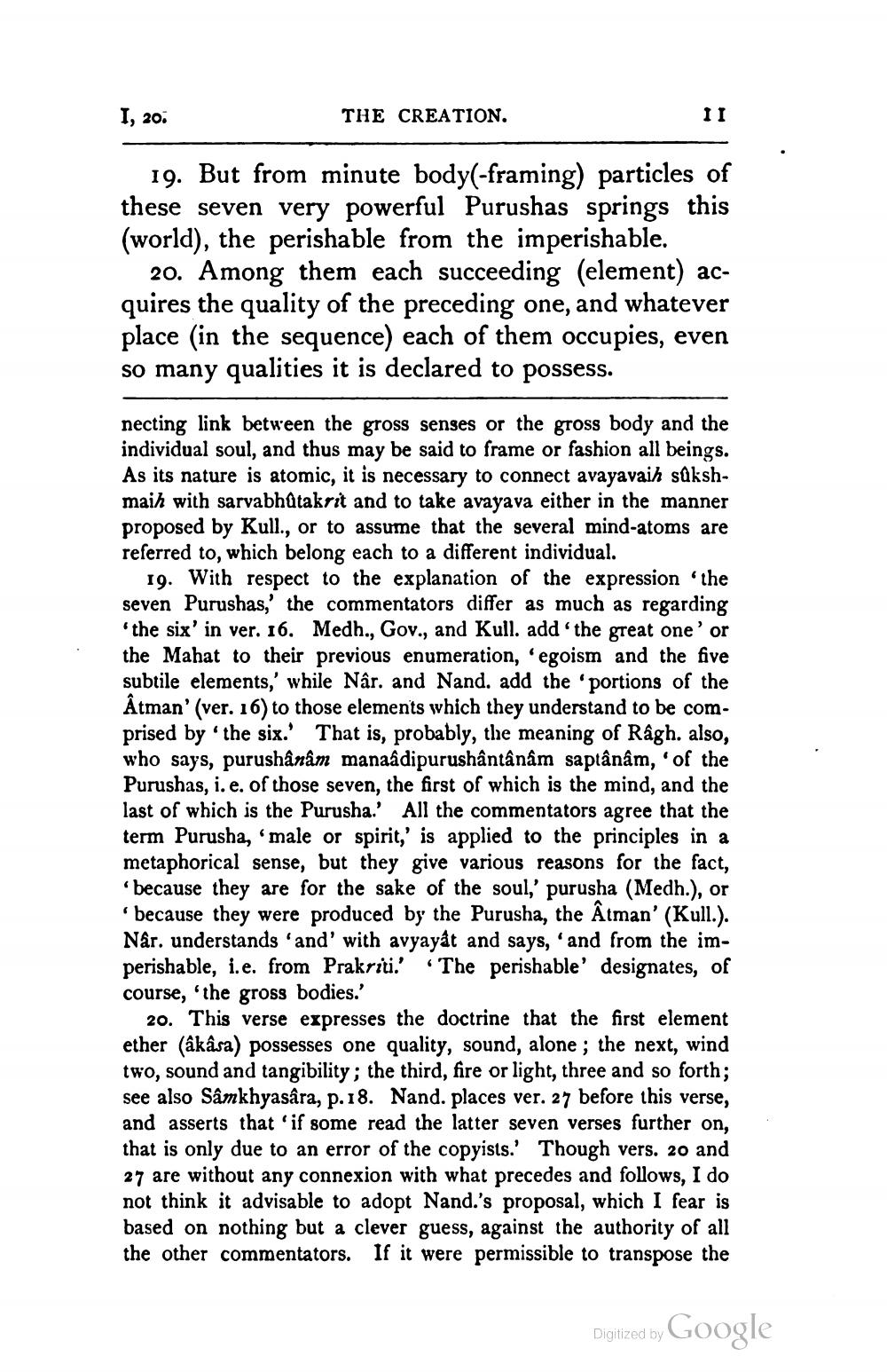________________
I, 20.
THE CREATION.
II
19. But from minute body(-framing) particles of these seven very powerful Purushas springs this (world), the perishable from the imperishable.
20. Among them each succeeding (element) acquires the quality of the preceding one, and whatever place (in the sequence) each of them occupies, even so many qualities it is declared to possess.
necting link between the gross senses or the gross body and the individual soul, and thus may be said to frame or fashion all beings. As its nature is atomic, it is necessary to connect avayavaih sakshmaih with sarvabhūtakrit and to take avayava either in the manner proposed by Kull., or to assume that the several mind-atoms are referred to, which belong each to a different individual.
19. With respect to the explanation of the expression the seven Purushas,' the commentators differ as much as regarding
the six' in ver. 16. Medh., Gov., and Kull. add the great one or the Mahat to their previous enumeration, 'egoism and the five subtile elements, while Nár. and Nand. add the portions of the Âtman' (ver. 16) to those elements which they understand to be comprised by the six.' That is, probably, the meaning of Râgh. also, who says, purushanam manaadipurushântânam saptânâm, of the Purushas, i.e. of those seven, the first of which is the mind, and the last of which is the Purusha.' All the commentators agree that the term Purusha, 'male or spirit,' is applied to the principles in a metaphorical sense, but they give various reasons for the fact, because they are for the sake of the soul,' purusha (Medh.), or
because they were produced by the Purusha, the Atman' (Kull.). Når. understands and' with avyayat and says, and from the imperishable, i.e. from Prakriti.' The perishable designates, of course, the gross bodies.'
20. This verse expresses the doctrine that the first element ether (akâsa) possesses one quality, sound, alone; the next, wind two, sound and tangibility: the third, fire or light, three and so forth; see also Sâmkhyasâra, p. 18. Nand. places ver. 27 before this verse, and asserts that 'if some read the latter seven verses further on, that is only due to an error of the copyists.' Though vers. 20 and 27 are without any connexion with what precedes and follows, I do not think it advisable to adopt Nand.'s proposal, which I fear is based on nothing but a clever guess, against the authority of all the other commentators. If it were permissible to transpose the
Digitized by Google




